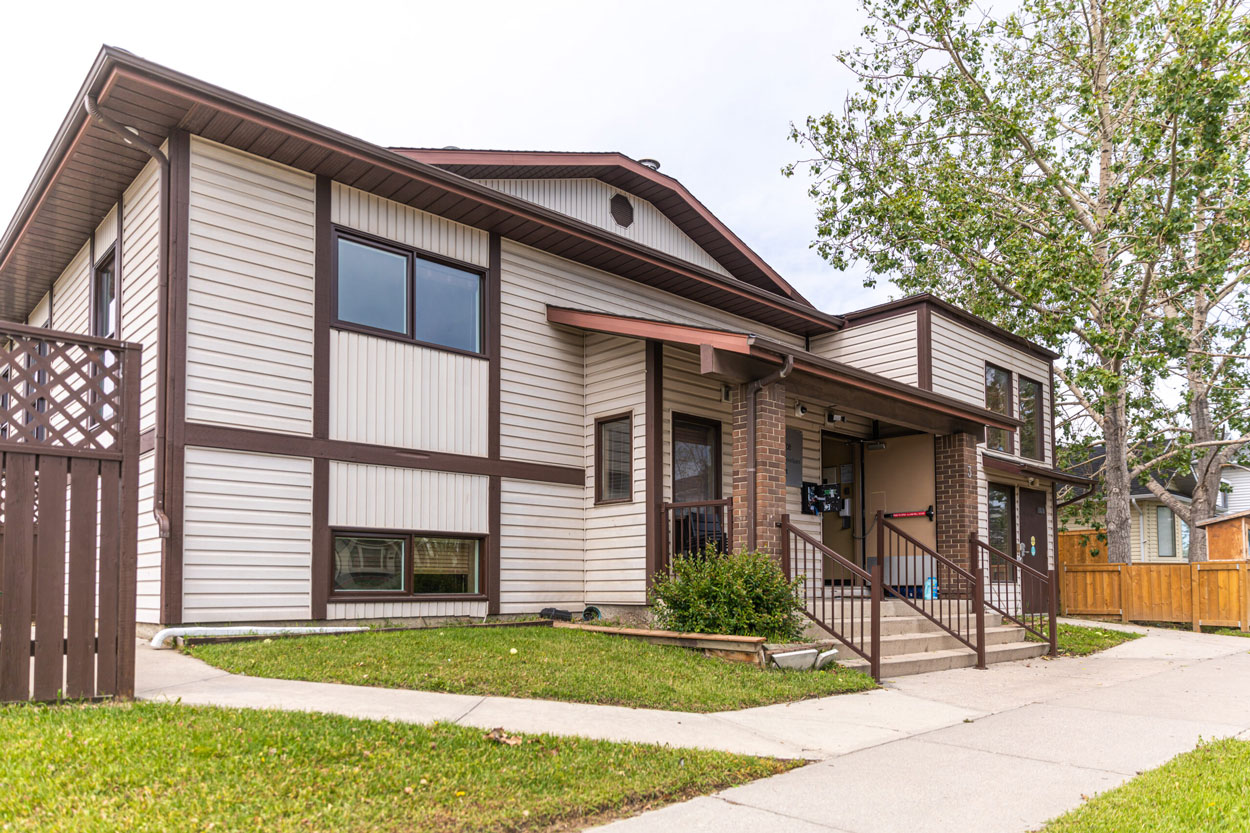
Approximately 40 Calgarians will be moved out of homelessness and into long-term housing by March 31, 2021, thanks to a new bridge housing program in a Martindale apartment building. The program will see individuals receive temporary housing at Kootenay Lodge with on-site support services so they can quickly and successfully move from the emergency shelter system into independent living. As part of the Diversion Bridge Housing Program, this 10-unit building’s bridge housing program is made possible as part of a collaboration between Calgary Homeless Foundation, HomeSpace Society and The Mustard Seed, and is especially important given the ongoing COVID-19 pandemic.
On Sept. 17, 2020, The Mustard Seed began receiving referrals to the building with staggered move-ins to follow. Individuals who have experienced homelessness for less than one year will move from an emergency shelter to Kootenay Lodge before relocating to a home. The program is targeted at individuals who face financial barriers, or low to moderate physical or mental health challenges. During their stay, a diversion advocate will provide on-site support with system navigation, help individuals secure financial supports, look for appropriate accommodation, and connect them with landlords to support their journey into independent housing.
Diverting people out of their experience of homelessness into a home is the best solution for the health of the individual and the community as a whole during the health crisis presented by COVID-19.
“The COVID-19 pandemic has highlighted that, now more than ever, housing is essential for health. As an immediate response, we have strengthened our partnerships in community to create collective solutions through coordination and collaboration to prevent and end homelessness for Calgarians as quickly and efficiently as possible— including this partnership with The Mustard Seed and HomeSpace,” says Matt Nomura, Vice President of Calgary’s Homeless-Serving System of Care, Calgary Homeless Foundation. “No two stories or pathways into homelessness are the same. An individual’s journey towards recovery requires a spectrum of services to support their successful exit out of homelessness. These services include a range of supports, from abstinence to harm reduction, and housing with intense supports to independent living,” Nomura continued.
The Mustard Seed will support the individuals during their time at the Kootenay Lodge, and throughout their transition as they move to their new home.
“The Mustard Seed is proud to offer multifaceted wraparound services to quickly facilitate moving individuals out of homelessness. We have a Resident Engagement worker on site to facilitate move-ins and move-outs, as well as ensure adherence to COVID precautions in place to protect residents. We also have a Diversion Advocate on site, who will assist in the housing journey, providing resources and system navigation for clients to smoothly transition into permanent housing,” said Samantha Lowe, Health and Wellness Manager, The Mustard Seed.
The Diversion Bridge Housing Program estimates that individuals will stay at Kootenay Lodge before moving into stable long-term housing.
“HomeSpace is committed to creating more affordable housing so vulnerable people can rebuild their lives from a place of dignity and safety,“ says Bernadette Majdell, CEO, HomeSpace Society. “This new bridge housing program at HomeSpace’s Kootenay Lodge is a perfect example of innovative collaboration to help address the urgent needs of our city.”














